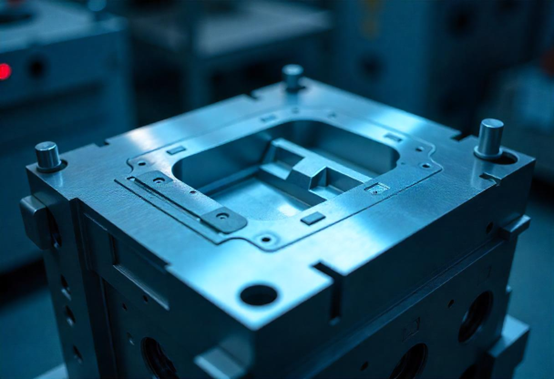
How to Improve Injection Molding Mold Lifespan?
Injection molding molds play a critical role in the manufacturing industry. These molds are responsible for shaping plastic components used in various sectors, including automotive,
Sheet Metal
Sheet metal fabrication is a manufacturing process that involves transforming flat metal sheets into various shapes and components. It encompasses a range of techniques, including cutting, bending, welding, and finishing, to create finished products from sheet metal. Sheet metal fabrication is widely used in industries such as construction, automotive, aerospace, electronics, and manufacturing to create a wide range of products, including enclosures, panels, frames, brackets, and more.
Our company specializes in delivering comprehensive and top-notch sheet metal fabrication solutions to meet a wide range of customer needs.
Sheet Metal Materials Available
Aluminum is a lightweight and highly malleable sheet metal material. It offers excellent corrosion resistance, good conductivity, and is often chosen for its aesthetic appeal. Aluminum alloys, such as 3003, 5052, and 6061, are commonly used for sheet metal fabrication.
Copper is valued for its superior electrical conductivity and thermal conductivity. It is often selected for applications that require high conductivity, such as electrical components and heat exchangers. Copper is also known for its attractive reddish-brown color that develops a natural patina over time.
Bronze is made by mixing copper with tin plus some additional alloying elements that enhance certain characteristics. Bronze for sheet metal fabrication must have high cold-workability and ideally should not work-harden too readily. Some bronze sheet materials tend to work-harden during forming and as such require annealing cycles to prevent cracks or tears during bending operations.
Stainless steel is a corrosion-resistant and hygienic sheet metal material. It is widely used in applications that require high durability, strength, and resistance to heat and chemicals. Different grades of stainless steel, such as 304, 316, and 430, offer varying levels of corrosion resistance and mechanical properties.
Steel is a versatile and widely used sheet metal material known for its strength, durability, and resistance to corrosion. It comes in various grades, such as carbon steel, stainless steel, and galvanized steel, offering different levels of strength and corrosion resistance.
Titanium is a lightweight and strong sheet metal material with excellent corrosion resistance, making it suitable for aerospace, marine, and chemical processing industries. It is also known for its biocompatibility, making it an ideal choice for medical implants.
Sheet Metal Applications

Injection molding molds play a critical role in the manufacturing industry. These molds are responsible for shaping plastic components used in various sectors, including automotive,

Mold texturing is a crucial step in injection molding that enhances both function and aesthetics. It involves modifying the mold’s surface to create patterns, textures,

After the festive celebrations of the Chinese New Year, we are excited to announce that our company has resumed full operations and is ready to tackle new challenges in the year ahead. With the holiday behind us, we’re back to work with a renewed focus on delivering top-notch manufacturing solutions and incorporating the latest technological advancements into our processes.
Let us help you provide high quality parts in short time. Get your project started now!
For calls, please contact us from Tuesday to Saturday (CST 8:30 AM - 5:30 PM).
Address 1: NO.222, YIXIAN ROAD, THE SIXTH INDUSTRIAL ZONE, NANLANG STREET, ZHONGSHAN CITY
Address 2: E BLDG,HUAYIN WISE VALLEY, NO.2 JIANSUO STREET,SCMCMC, NANLANG TOWN,ZHONGSHAN